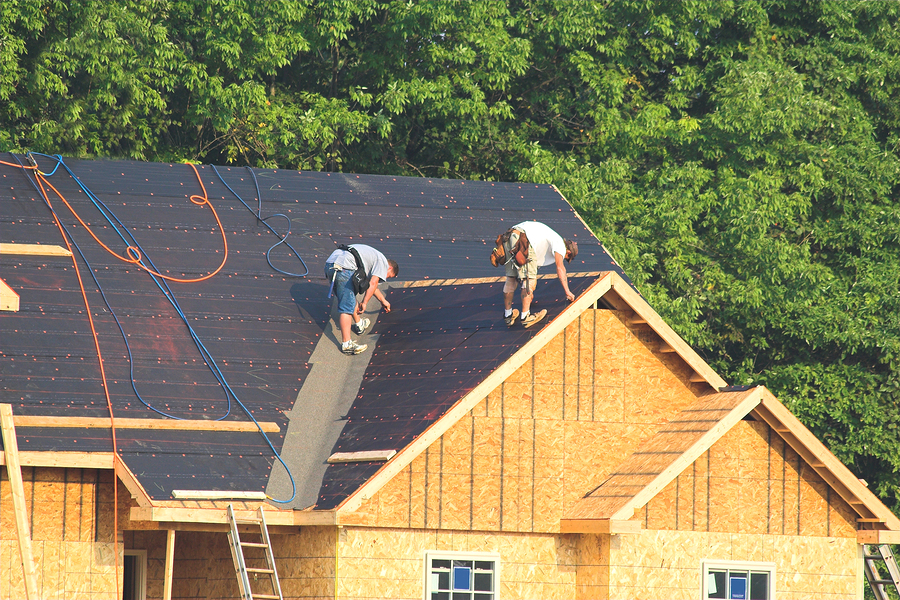Contact Us
Categories
- Kentucky Consumer Protection Act
- Judgment creditors
- Fractional Investment
- Section 1031 transactions
- Investment
- U.S. Supreme Court
- Breach
- Closing
- Closing Disclosure
- Good Faith Estimate
- HUD-1 Settlement Statement
- Kentucky minimum wage
- Lenders
- Minimum wage
- Truth in Lending Act
- “Know Before You Owe”
- Arbitration
- Condemnation
- Dodd-Frank Act
- Home Equity Conversion Mortgages (HECMs)
- Mortgage
- Reverse mortgages
- Zoning Regulations
- Affordable Housing
- Commercial Real Estate
- Economic Development
- Land Use Law
- Landlord
- Lease
- Planning and Zoning
- Property Titling
- Purchase Contract
- Real Estate Law
- Rescission
- Same-Sex Couples
- Tenant
- URLTA
- Agritourism
- Deed
- Drones
- Homeowners Association
- Land Surveys
- LBAR
- National Association of Realtors (NAR)
- Plat
- Property Lines
- Property Survey
- Real Estate Agents
- Rural Areas
- Trulia
- Uncategorized
- Zillow
- Benningfield v. Zinmeister
- Boards of Adjustment
- Building Inspection
- Co-Signing
- Code Enforcement
- Commercial Lease
- Conditional uses
- Condominium
- Deeds
- Dog owners
- Emergency Preparedness
- Emotional Support Animals
- ESIGN
- Exclusive Use Clause
- Federal Housing Administration (FHA)
- Horizontal Property Law
- Inspection
- Insurance Companies
- Insured
- Kentucky Condominium Act
- KRS 383.500
- KRS §258.235(4)
- KRS §383.580
- Loans
- Multi-unit properties
- Natural Disasters
- Occupancy Fraud
- Overlay Zoning
- Screening
- Security Deposit
- Servicers
- Steenrod v. Louisville Yacht Club Association
- The Loan Estimate form
- Title Insurance Policies
- Truth in Lending Statement
- U.S. Department of Housing and Urban Development
- Variances
- Zoning Ordinance Text Amendment
- "Right-of-Way Agents"
- Bluegrass Pipeline
- Boilerplate Language
- Conservation Easement
- Consumer Financial Protection Bureau (“CFPB”)
- Credit Report
- Credit Score
- Easement
- Eminent Domain
- FICO
- General Forms
- Homebuyers
- Kentucky landowners
- Power of Attorney ("POA")
The Basics of Filing a Private Mechanic’s Lien in Kentucky
A mechanic’s lien is an invaluable tool for contractors and others who supply labor or materials for improvements to real property. In its most basic sense, a mechanic’s lien provides security for these groups so that they are not left at the mercy of a defaulting contractor or property owner. The discussion set forth herein only addresses the requirements for filing and perfecting a mechanic’s lien against a privately owned parcel of real property. The requirements for filing and perfecting a public improvement lien differ from those discussed below.
Generally, a mechanic’s lien is available to any person who provides labor or furnishes materials for the improvement of real property by contract with, or by written consent of the property owner.[1] The lien is superior to any mortgage or encumbrance created subsequent to the beginning of the labor or the furnishing of materials and the lien relates back and takes effect from the time of commencement of the labor or furnishing of materials.[2] For a lien to take precedence over a subsequent mortgage, contract lien or bona fide sale, however, a person who will claim a mechanic’s lien must file, before the recording of the later mortgage, contract lien or bona fide sale, in the office of the county clerk of the county wherein he or she has furnished or expects to furnish labor or materials, a statement showing that he or she has furnished or expects to furnish labor or materials, and the full amount thereof.[3] Thus, except as described herein, any mortgages or other contract encumbrances filed prior to the filing of the mechanic’s lien will take precedence over the mechanic’s lien.
Depending on the relationship of the contractor to the property owner, the requirements for filing and perfecting a mechanic’s lien statement are different. Contractors who have contracted directly with the property owner are not required to send the owner a notice of the party’s intent to file a mechanic’s lien. However, where the contractor has not contracted directly with the owner, such prelien notice must be given to the property owner within a specified time period.[4] Where prelien notice is required, if the property is a commercial property or is not owner-occupied, then the party seeking to file the mechanic’s lien must notify in writing the owner of the property or his/her authorized agent, within seventy-five (75) days on claims amounting to less than $1,000 and one hundred twenty (120) days on claims in excess of $1,000 after the last item of material or labor is furnished, of the party’s intention to hold the property liable and the amount for which the party will claim a lien.[5] With regard to a owner-occupied single or double family dwelling, the party seeking to file the mechanic’s lien must notify in writing the owner of the property to be held liable or his/her authorized agent not more than seventy-five (75) days after the last item of material or labor is furnished, of the delivery of the material or performance of labor and of his intention to hold the property liable and the amount for which the party will claim a lien.[6] In either scenario, the prelien notice must be mailed to the last known address of the owner of the property upon which the lien is claimed, or to his/her duly authorized agent.[7] Importantly, with regard to owner-occupied single or double family dwellings, the contractor or subcontractor cannot be the authorized agent.[8]
Pursuant to KRS 376.080, whether a prelien notice is required or not, the mechanic’s lien itself must be filed within six (6) months after the last date the contractor provided labor or furnished materials for improvement of the property. Otherwise, the lien is dissolv ed. The lien statement must be filed in the office of the county clerk of the county where the building or improvement is located and must provide the amount due, with all just credits and set-offs known, together with a description of the property intended to be covered by the lien sufficiently accurate to identify it, the name of the owner, if known, and whether the materials were furnished or labor provided pursuant to a contract with the owner or with a contractor or subcontractor.[9] The name and address of the party claiming the lien must also be included in the lien statement.[10] The lien must also be subscribed and sworn to by the party claiming the lien or by someone on the party’s behalf.[11] Importantly, the amount of the mechanic’s lien cannot be greater in aggregate than the contract price of the original contractor.[12]
ed. The lien statement must be filed in the office of the county clerk of the county where the building or improvement is located and must provide the amount due, with all just credits and set-offs known, together with a description of the property intended to be covered by the lien sufficiently accurate to identify it, the name of the owner, if known, and whether the materials were furnished or labor provided pursuant to a contract with the owner or with a contractor or subcontractor.[9] The name and address of the party claiming the lien must also be included in the lien statement.[10] The lien must also be subscribed and sworn to by the party claiming the lien or by someone on the party’s behalf.[11] Importantly, the amount of the mechanic’s lien cannot be greater in aggregate than the contract price of the original contractor.[12]
After the lien has been filed, the party filing the mechanic’s lien must send by regular mail a copy of the lien statement to the property owner at his/her last known address within seven (7) days of filing the lien statement with the county clerk.[13] If this seven (7) day notice and a copy of the lien statement are not provided to the owner, then the lien is dissolved.[14]
Additionally, any mechanic’s lien filed pursuant to KRS 376.010 is deemed dissolved unless an action to enforce the lien is brought in the appropriate court within twelve (12) months from the day of the filing of the line statement in county clerk’s office.[15]
It is important to note that Kentucky law requires strict compliance with the statutory requirements applicable to mechanic’s liens.[16] If the statutory requirements are not strictly followed, then the mechanic’s lien is dissolved.[17]
Finally, after the lien claim is satisfied, the lienholder must release the lien within thirty days. Otherwise, the lienholder may be liable under KRS 382.365 to the property owner at a rate of $100 per day the lien is not released, starting fifteen (15) days after the owner gives the lienholder notice of the failure to release the lien. This figure increases to $500 a day after thirty days, so releasing the lien is an especially important step in the lien process.
For more information on mechanic’s and materialmen’s liens and how these liens affect construction or other improvements to real property, contact the attorneys at McBrayer PLLC.
Brendan Yates joined the Lexington office of the firm as an associate in 2002. Brendan is a member of the firm’s Litigation Department, where he focuses his practice on construction and real estate litigation, workers’ compensation defense litigation, insurance defense and commercial litigation. He has successfully defended his clients in state and federal courts, the Kentucky Court of Appeals, the Kentucky Supreme Court, and in administrative agency proceedings in Kentucky. He can be reached at byates@mcbrayerfirm.com(859) 231-8780, ext. 1208.
Services may be performed by others.
This article does not constitute legal advice.
[1] KRS 376.010(1)
[2] Id.
[3] KRS 376.010(2)
[4] KRS 376.010(3) and (4).
[5] KRS 376.010(3).
[6] KRS 376.010(4).
[7] Id.
[8] Id.
[9] KRS 376.080(1).
[10] Id.
[11] Id.
[12] KRS 376.010(1).
[13] KRS 376.080(1).
[14] Id.
[15] KRS 376.090(1).
[16] Laferty v. Wickes Lumber, Ky.App., 708 S.W.2d 107 (1986).
[17] Id.


